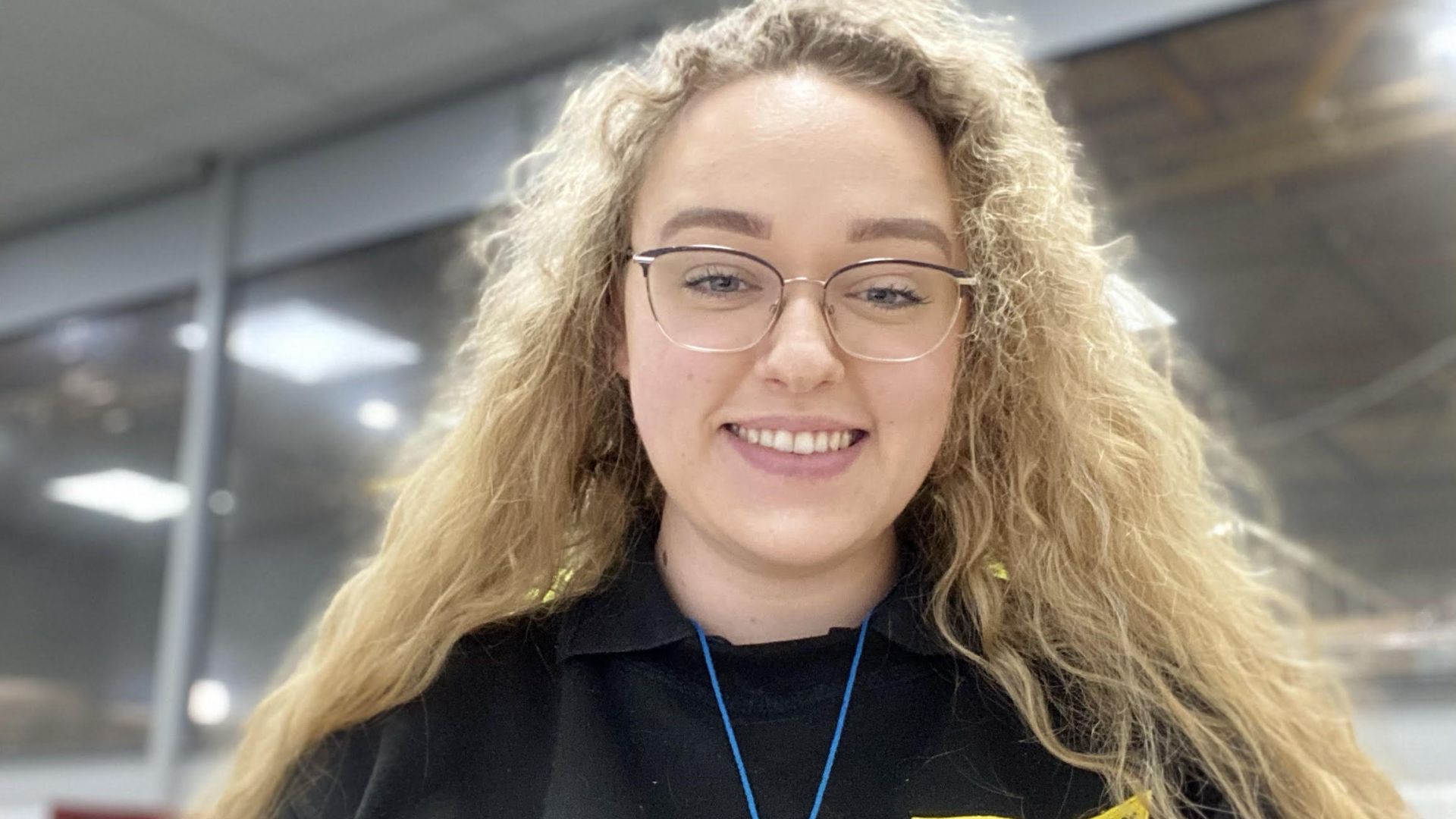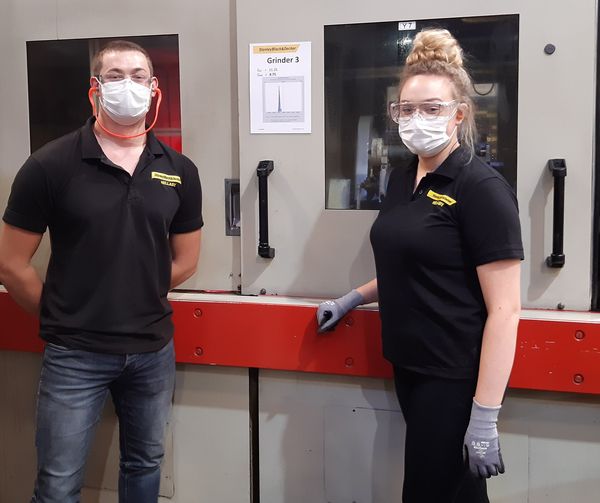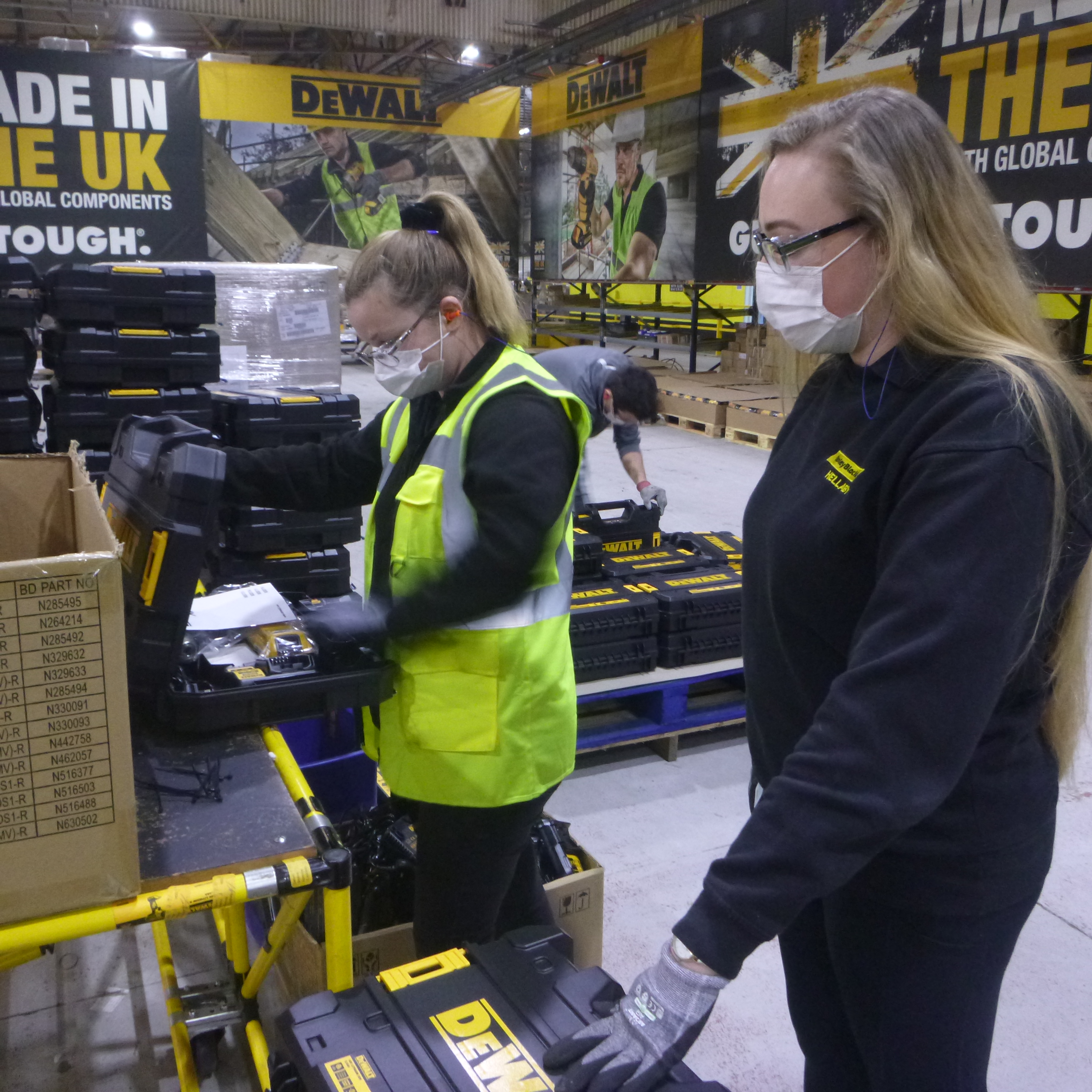Quality Engineer Apprentice - Lucy Hattersley

We're celebrating International Women's Day 2021. The theme this year is #ChooseToChallenge, so we're looking at some of the amazing women who work at the AMRC and AMRC Training Centre who #ChooseToChallenge engineering gender stereotypes every day.
Name: Lucy Hattersley
Job title: Quality Engineer Apprentice
Company: AMRC Training Centre Apprentice at Stanley Black & Decker
Describe your job?
I’m currently training to be a Quality Engineer. My job currently involves investigating problems we encounter during our production processes, whether they’re supplier based or internal issues. This involves several processes, such as an in-depth analysis of the process and possible causes and implementing new and improved testing/checking methods to prevent these problems reoccurring in the future. Alongside this, I regularly check on-the-line products and work with other departments to implement better quality based checks to ensure what we’re making fits our specification and meet our customer standards.

Tell us about a typical week at work?
A typical week at work involves various department ‘Huddle-board’ meetings each morning, which allows me to keep a clear line of communication open between our Quality department and the other teams, so any new or current problems can be discussed. This also ensures that everyone involved is aware of any upcoming changes or updates with ongoing issues. I also attend university once a week as part of my ongoing studies for my bachelor’s degree in manufacturing technology. Along with these daily activities, I also tackle ongoing problems we’re having with suppliers and/or internally manufactured products.
What advice would you give to someone starting out in the industry or thinking of a career in STEM (Science, Technology, Engineering and Maths)?
To anyone who is considering a career in STEM or who is just at the beginning of their career journey, I recommend you do plenty of research into the industry and make sure it is an area you’re interested in. If possible, get involved in work experience and spend some time working in and observing the STEM environment. My main piece of advice would be to not be put off by how many males there are in the industry. Being part of the minority doesn’t put you at any disadvantage, as there are various different roles in engineering which everyone can reach, so don’t let gender stereotypes put a limit on your ambition.
What is it like being a woman in engineering?
Being a woman in engineering has been a very positive experience for me, and I’m yet to experience any issues related to this. Despite being one of the few women in this industry, I always feel included and feel that my opinions are valued by my colleagues. It doesn’t bother me on a day-to-day working in a male-dominated environment, but it is noticeable. In spite of this, from my experience everyone I’ve worked with is always keen to help me learn and are happy for me to be involved in their work, and always offer as much support as they can towards my development of knowledge. The start of my career was the hardest step, and I believe the problem stems from the fact that there isn’t enough career guidance on engineering from schools. I think this career option should be communicated a lot clearer and earlier in schools, so that everyone knows that it is an option for them and students have a good understanding of engineering and what a great career path it can be.

What is your greatest career achievement to date?
My greatest career achievement to date is my involvement and completion of one of our WAVE projects on site. This involved being part of a small team of various employees to increase the output of parts per hour of one of our chisel manufacturing processes over the course of 10 weeks. We successfully increased our output and reached the set target by working together to change our current processes and to develop new pieces of equipment to create a safer working environment for our operators, which also allow the process to flow better.
Why did you choose a career in STEM?
I chose a career in STEM because I’ve always enjoyed problem solving activities and taking part in design based tasks, which there is an abundance of in the engineering industry. After spending time in other engineering environments as part of work experience during school, I discovered my passion for engineering and found how much I enjoyed working with others to solve problems and create improvements.
